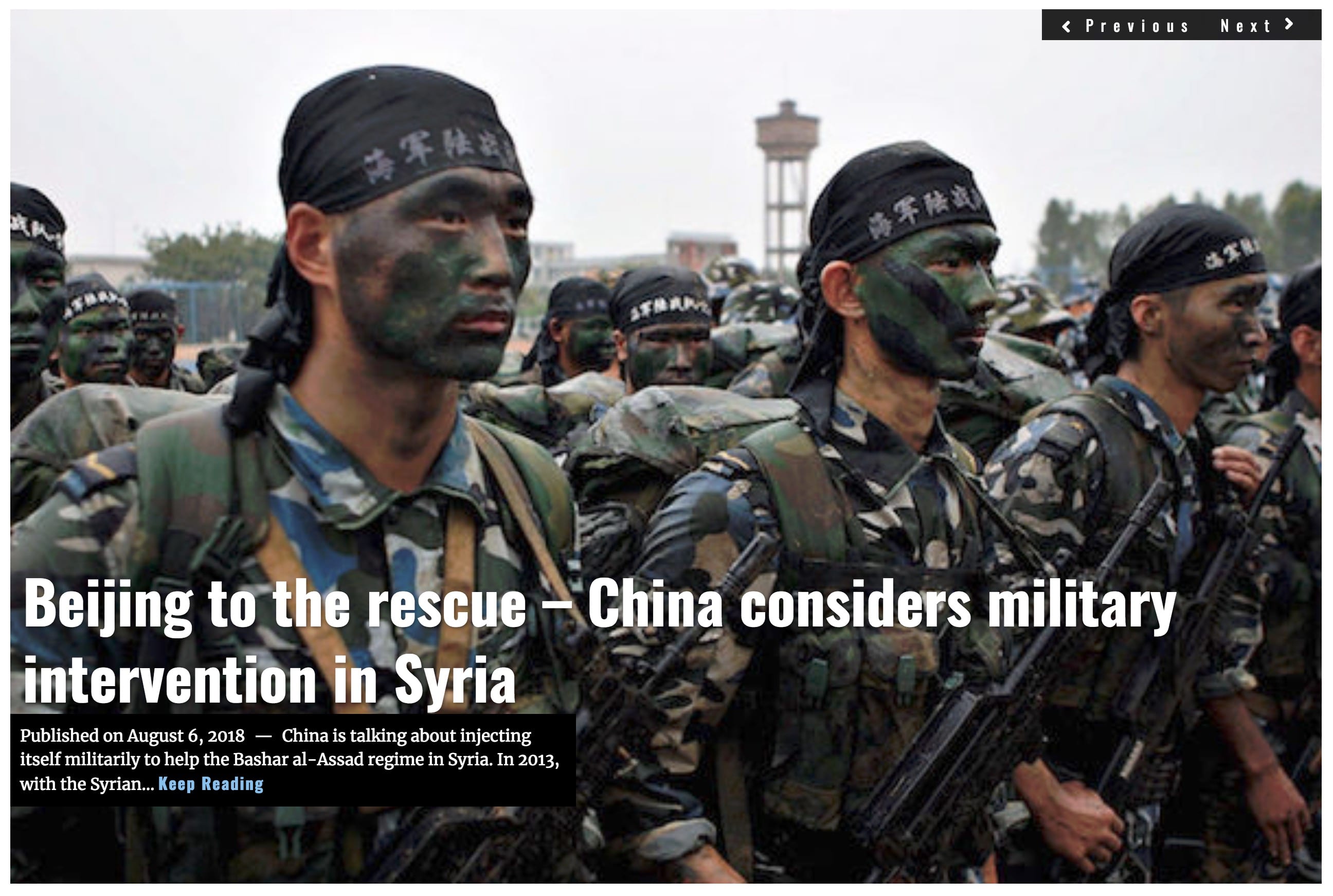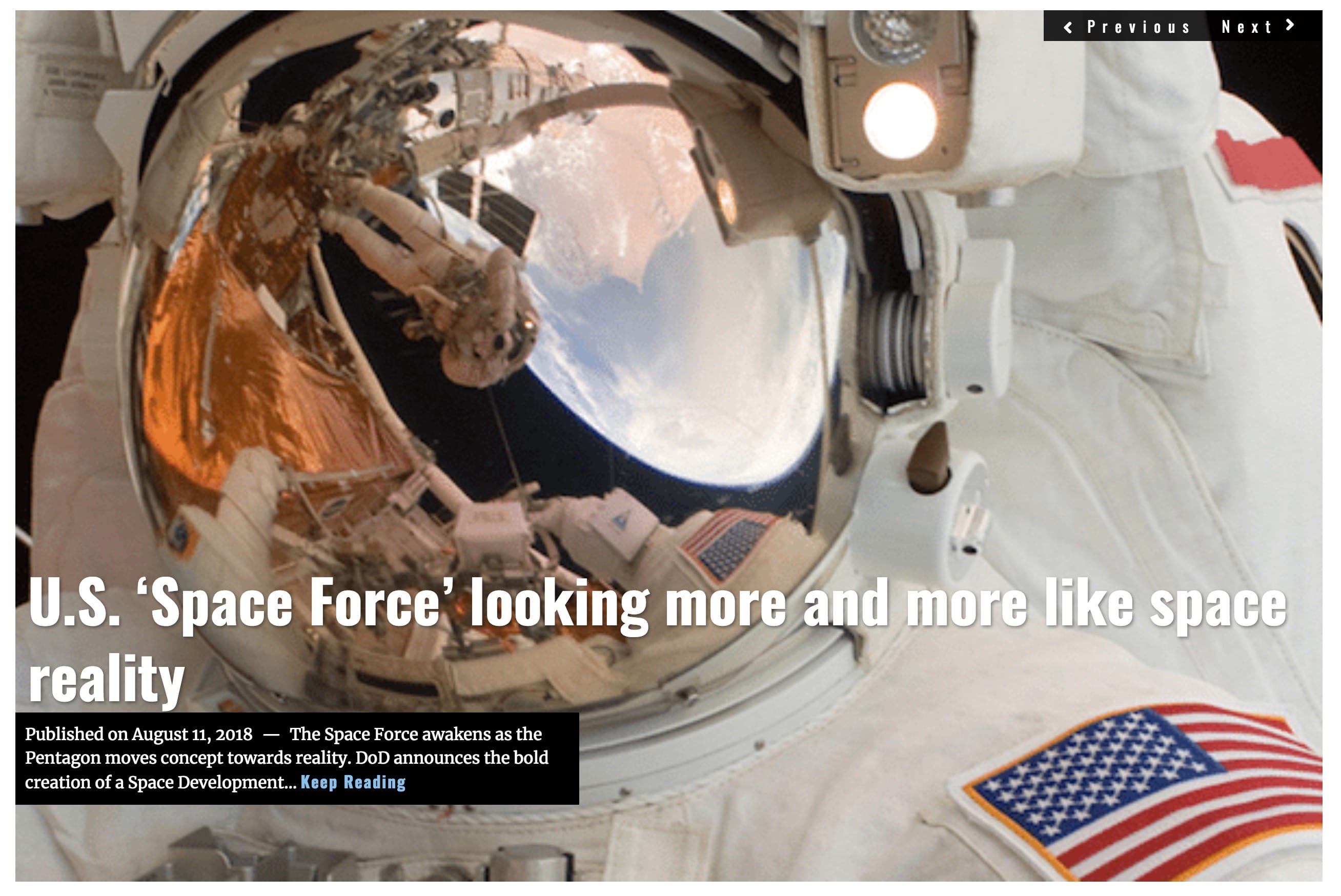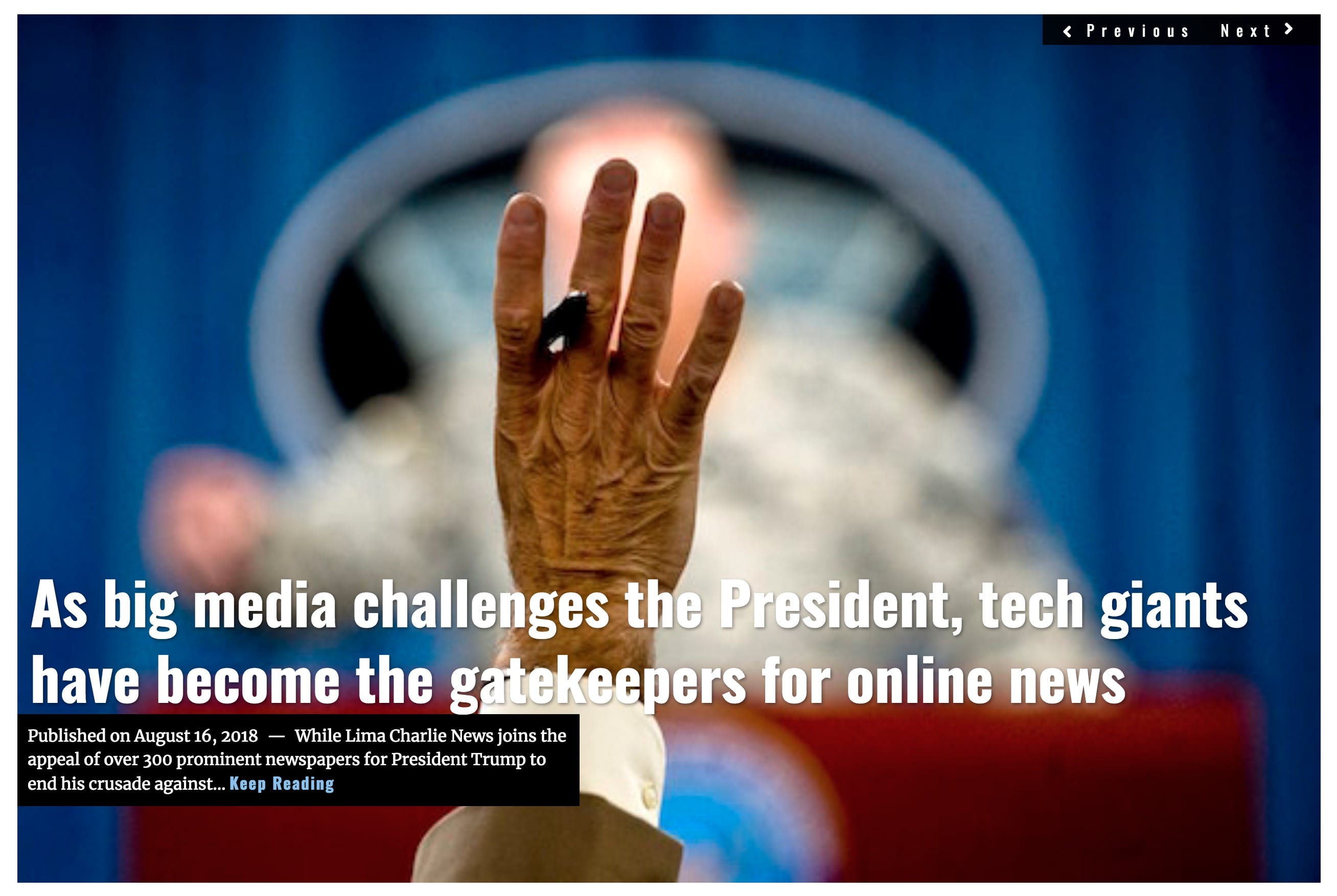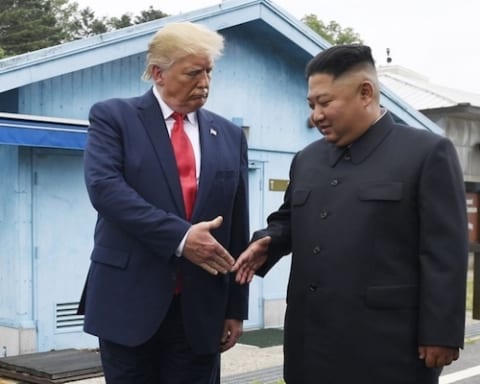China’s leadership faces rising domestic opposition in light of a faltering trade war against the US, leading Chinese society to question some long-standing truths.
Chinese President, Xi Jinping, is facing increasing domestic resistance and opposition from all corners of society in light of the ongoing trade conflict with the U.S. The resistance began in academic circles, but quickly spread to the political and business communities.
Part 1: Opposition is true friendship (or A Professor Tilting at Windmills)
The intellectual centrepiece of the rising opposition is an essay by Xu Zhangrun, a law professor at the prestigious Tsinghua University and the Unirule Institute of Economics think tank in Beijing. The essay, first published in late July on the Unirule webpage argues that the Chinese Communist Party (CCP) has progressively been losing its reformist drive and spirit, resulting in the party now being in breach of the trust of the Chinese people.
The essay singles out President Xi Jinping as a primary problem, arguing that Xi’s increasingly hardline domestic policies have destroyed decades of positive reforms and increasing social freedoms. The professor also calls upon the Chinese parliament to repeal the decision taken in March, which enables Xi to remain the Chinese president for life.
The 10,000-character long essay entitled “Our Dread Now, and Our Hopes” (我们当下的恐惧与期待), is composed of four parts; ‘Four Bottom Lines,’ ‘Eight Forms of Anxiety,’ ‘Eight Hopes,’ and ‘The Interim.’ Within days, the essay began spreading as an open letter across Chinese social media, primarily through Kaixin001, WeChat and Renren. Soon the legitimacy of the byline was put into question.
Few believed that an established local academic would write such an unfavourable piece about President Xi and his administration under his own name. Professor Xu confirmed authorship, stating that the letter did indeed represent his opinion and words. From that point, the letter quickly gained widespread circulation throughout the academic internet, with ranking academics reiterating its points in classes and voicing their support of Xu.
People nationwide, including the entire bureaucratic elite, feel once more lost in uncertainty about the direction of the country and about their own personal security, and the rising anxiety has spread into a degree of panic throughout society.
– Professor Xu Zhangrun in his essay “Our Dread Now, and Our Hopes”
(Based on translation done by Donald Clarke, law professor specializing on Chinese law at George Washington University Law School in Washington, D.C.)
The professor’s essay is no doubt part of a reaction to the eviction of the Unirule Institute of Economics think tank on July 10th, 2018. According to Dr Sheng Hong (盛洪), the founder of the think tank, the government representatives ordered workmen from a nearby construction site to weld the office metal front door shut, trapping five staff members inside.
The staffers were not released until the police arrived, upon which the organisation was informed that they were to be evicted with immediate effect. This, according to Sheng, was despite being up to date with the rent. The institute has since operated as a digital workgroup, without a physical presence.
Part 2: Oppose the King, Face the Rack
Professor Xu’s future is now uncertain. In the immediate aftermath of his newfound fame Xu went into self-imposed exile. Within a few days it was announced that he had accepted a suddenly offered guest professorship in Japan at an undisclosed institute. It remains unclear for how long Xu will remain in Japan. In the past, academics who have been outed as supporting government defying viewpoints have been arrested by Chinese intelligence and law enforcement agencies.
The Chinese government is heavy handed when dealing with dissidence. A recent example is the case of retired economics professor, Sun Wenguang.
On August 1st, Professor Sun was giving a live phone interview to the Voice of America (VOA) radio show “Issues and Opinions” from his home in Jinan, the capital of Shandong province when he was arrested. Professor Sun was being interviewed with regard to an open letter he had authored criticising Chinese foreign aid and military interventions at a time when Chinese domestic poverty is on the rise. In the middle of the interview, police broke down the apartment door and arrested him.
“I am entitled to express my opinion. This is my freedom of speech,” Sun shouted to the ingressing police officers just before the line went dead.
In the aftermath of Professor Sun’s arrest, the Chinese government refused to comment on the situation or give the whereabouts of the 84-year-old professor causing many to fear that the worst was at hand.
The U.S. State Department publicly condemned the arrest, stating that “we condemn China’s ongoing abuse of human rights, in particular, the suppression of the fundamental freedoms of expression, association and peaceful assembly, and the unlawful detention of activists, lawyers, journalists and civil-society leaders seeking to defend those freedoms.”
VOA journalists reached out to the local authorities in Jinan and ventured to the professor’s apartment on a number of occasions, but were continuously rebuffed and given no answers.
For twelve days the whereabouts of Professor Sun remained unknown, it was not until August 13th that the VOA could re-establish communication with him. VOA Correspondent Yibing Feng and voice technician Allen Ai were able to have a brief conversation with the professor through a closed apartment door. During the talk, the professor said that he was under house arrest but could give little to no other details. While leaving the apartment building, the two VOA journalists were arrested by Chinese police.
Part 3: The Emperor Is Not Wearing Any Clothes
To no small degree, it appears that the current discontent within business and political circles is a direct result of the ongoing trade war between the U.S. and China. Many Chinese people fear that such a trade war will lead to detrimental domestic developments. In recent years, the Chinese economy has been slowing down, which has made China significantly more vulnerable to a trade war.
Despite this, President Xi’s administration was seen as taking an unusually aggressive and grandiose position on the domestic scene as to how it would negotiate with the United States. The administration stated that China would not surrender or appease the Americans in the negotiations, but instead merely gain ground.
We are not in a trade war with China, that war was lost many years ago by the foolish, or incompetent, people who represented the U.S. Now we have a Trade Deficit of $500 Billion a year, with Intellectual Property Theft of another $300 Billion. We cannot let this continue!
— Donald J. Trump (@realDonaldTrump) April 4, 2018
When trade negotiations began in May, Xi dispatched his top economic adviser Liu He to the U.S. as his “personal envoy”. When Liu returned to China, he was quick to proclaim victory on Chinese national TV, stating that there would be no trade war. In the days that followed, the U.S. administration imposed $50-billion’s worth of tariffs against China. That quickly escalated to Trump publicly discussing the possibility of imposing a further 25 per cent tariff, worth $200-billions against Chinese import commodities.
The trade negotiations are widely seen as a failure. Economists predict that the damage already done could shave off as much as half a percentage point from China’s 2018/2019 Gross Domestic Product (GDP) growth index. This has lead Chinese observers and opposition to sense that President Xi is exposed and that there is blood in the water.
Economists, politicians and business leaders alike are now questioning if the administration’s approach to the negotiations was not needlessly aggressive and whether more could not have been done to avoid the confrontation.
For neither good nor evil can last for ever; and so it follows that as evil has lasted a long time, good must now be close at hand.
― Miguel de Cervantes Saavedra, Don Quixote
Part 4 – “Virtue is persecuted by the wicked more than it is loved by the good.”
As a result of the trade war and perceived loss of ground thereof, many have begun to doubt the so-called “Chinese Dream.” The Chinese dream is a nationalistic concept and catchphrase created by President Xi’s chief propagandist, Wang Huning, in 2003. The concept was created to be a personification of President Xi’s leadership, to centralise and embody a China First mentality, where China will prosper. Individual prosperity and “freedom under responsibility” are each a part of this. Opposing Xi’s leadership means opposing the concept, along with China and society along with it.
Questioning the Chinese Dream, and how the government dealt with the trade war, has led many to also doubt decades – in some cases millenniums – of standing core beliefs and worldviews. Now the backlash against ingrained propaganda is being felt at the very highest echelons of the government.
Wang is being accused of having exaggerated the use of propaganda and nationalism to raise the Chinese perception of the nation’s position in trade and other issues to artificial heights.
One such worldview is that the leadership figures of the country are, much like the emperors that came before the present day pseudo-communist leadership, untouchable and supermen, or Übermenschen; uniquely eligible to wisely and reliably guide the nation forward towards prosperity for all. Essential to this worldview is the age-old Chinese sense of nationalism and distrust of outsiders.
China remains, despite being a central hub for trade and industry, a highly xenophobic country where outsiders such as Europeans and Americans are deemed as less developed, less refined and less able individuals and societies. As a result of this mentality, policies of these outsiders are often thought to be impure and are described, nearly by default, as imperialistic, whereas Chinese foreign policies are defined as significantly more purebred and noble.
These beliefs may be the real reason why China went about the trade negotiations with such ferocity, and why the shock of its people might lead to renewed reform efforts. The dogma that Xi, Liu and Wang deployed when describing the developing situation indicates that they might themselves have become victims of believing their own propaganda. The Chinese leadership misjudged the U.S., and its President’s worldview, because they viewed it out of a propagandist viewpoint rather than a pragmatic and self-aware prism. They failed to understand that their own overly nationalistic stance was rubbing President Trump, who holds his own particular variation of the same theme entitled “Make America Great Again”, the wrong way, which led to him hardening the U.S. positions.
It remains to be seen what actual consequences Xi and his administration will face from the change in perception and attitude of the Chinese people, and China’s changing ties to the U.S. Most analysts agree that the mounting internal political friction and opposition against President Xi and his policies is unlikely to endanger Xi’s present position. With that having been said, it is worth noting that so many and knowledgeable analysts and media at the same time are warning of increasingly widespread criticism of his hard-line leadership.
By extension, the critique also seems to have led to a discussion among many Chinese politicians – probably stemming from feeling sidetracked – about the suitability of Xi Jinping centralizing such enormous power around his own person.
In the meantime, it appears certain that Professor Xu and Professor Sun will soon have to share the limelight with others daring to face Xi’s windmills publicly.
Would you like to read more? Here’s a handful of recommended articles:
Is Xi Jinping’s Bold China Power Grab Starting to Backfire? (Bloomberg)
Cracks appear in ‘invincible’ Xi Jinping’s authority over China (The Guardian)
Chinese leadership is facing a rare backlash for its handling of the US trade dispute (CNBC)
Xi Jinping sees some pushback against his iron-fisted rule (Washington Post)
As China’s Woes Mount, Xi Jinping Faces Rare Rebuke at Home (New York Times)
Handling of U.S. trade dispute causes rift in Chinese leadership: sources (Reuters)
IMF warns on trade wars; China’s economic growth slows – as it happened (The Guardian)
[Featured Photo: Johannes Eisele / AFP]
John Sjoholm, Lima Charlie News
John Sjoholm is Lima Charlie’s Middle East Bureau Chief, Managing Editor, and founder of the consulting firm Erudite Group. A seasoned expert on Middle East and North Africa matters, he has a background in security contracting and has served as a geopolitical advisor to regional leaders. He was educated in religion and languages in Sana’a, Yemen, and Cairo, Egypt, and has lived in the region since 2005, contributing to numerous Western-supported stabilisation projects. He currently resides in Jordan. Follow John on Twitter @JohnSjoholmLC
Lima Charlie provides global news, featuring insight & analysis by military veterans and service members Worldwide.
For up-to-date news, please follow us on twitter at @LimaCharlieNews
In case you missed it:

![image Resistance mounts against China's President Xi Jinping [Lima Charlie News][Photo: Johannes Eisele / AFP]](https://limacharlienews.com/wp-content/uploads/2018/08/Resistance-mounts-against-Chinas-President-Xi-Jinping.jpg)



![Image Huawei – China’s telecom giant hits a giant wall [Lima Charlie News]](https://limacharlienews.com/wp-content/uploads/2019/01/Huawei-–-China’s-telecom-giant-hits-a-giant-wall-480x384.png)
![Image Tariffs – a mixed blessing for American businesses [Lima Charlie News]](https://limacharlienews.com/wp-content/uploads/2018/12/Tariffs-–-a-mixed-blessing-for-American-businesses-Lima-Charlie-News-480x384.png)



![Blossoming Russo-Turkish alliance leaves U.S., NATO behind [Lima Charlie News]](https://limacharlienews.com/wp-content/uploads/2019/07/Russia-Turkey-alliance-leaves-U.S.-NATO-behind-480x384.png)


![Image Huawei – China’s telecom giant hits a giant wall [Lima Charlie News]](https://limacharlienews.com/wp-content/uploads/2019/01/Huawei-–-China’s-telecom-giant-hits-a-giant-wall-150x100.png)
![Image Tariffs – a mixed blessing for American businesses [Lima Charlie News]](https://limacharlienews.com/wp-content/uploads/2018/12/Tariffs-–-a-mixed-blessing-for-American-businesses-Lima-Charlie-News-150x100.png)